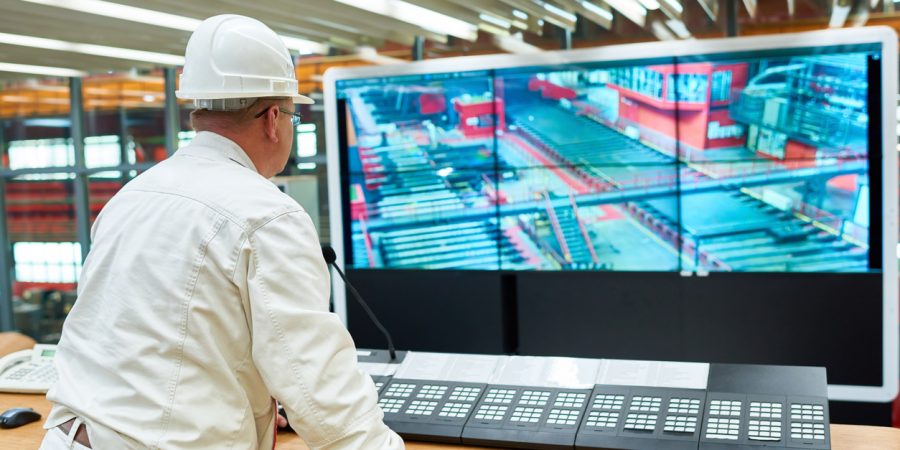When you consider the variety of ways NFC is used in manufacturing and the range of benefits it brings, it’s no surprise that it is becoming one of the most widely used technologies in industry. It can improve inventory tracking, security, manufacturing processes and maintenance. Here, we’ll take a look at the ways NFC is benefitting the industry today.
What is NFC?
NFC stands for Near Field Communication, it is a technology that uses radio waves to transfer data between two NFC enabled devices over short distances. One device is an NFC tag, a small chip that can be attached to or embedded into products, components, machinery and tools, and the other is a reader, which is able to read the data stored on a tag. Readers, in turn, can be connected to a central IT network, enabling information received from a tag to be processed and acted upon.
- Smarter manufacturing
To get the most from NFC, companies need to equip their products, components, tools and machinery with NFC tags and install the readers at appropriate places along their manufacturing lines.
Doing this can provide a range of benefits. For example, the tags on the products could carry specific manufacturing instructions. When a machine with a built-in reader scans the tag, it can be sent those instructions and be reprogrammed to carry out its operation in the correct way. This enables companies to run different products along its manufacturing line in an automated way, removing the need to manually reset machines for each type of product. In a timber mill, for instance, tags on different pieces of timber could be used to tell the machine to cut it to different lengths or widths.
Another advantage is that NFC tags enable machines to communicate with each other. This can be exceptionally useful where there is a downstream workflow. Here, upstream machines can inform those further down the line if there are delays or stoppages. Where the timing of processes is important, this can ensure that operations continue to run in a coordinated way.
- Better robotics
Robotics are playing an increasingly important role in today’s manufacturing and NFC is a key technology to help robots carry out processes effectively. By placing NFC tags on components and tools and connecting a robot to an NFC reader, the robot is able to tell that it is using the right component and tools to carry out each job. In this way, the chances of producing faulty products are dramatically reduced.
- Improvements in maintenance
Robots and other machines that are programmed to detect internal faults can use NFC tags to communicate this information to service personnel over the IT network. This enables rapid response to any urgent issues and ensures all machines that require regular maintenance work get it done on time.
Importantly, NFC tags can send continuous status information over the network and this can be displayed on devices, such as tablets, which maintenance workers use. These devices can then act as an interface to carry out maintenance, change parameters or calibrate equipment.
In addition, tags can ensure that maintenance staff have access to relevant data ensuring that they arrive knowing what the problem is and have the right equipment with them to quickly and effectively carry out any repairs.
- Online benefits
NFC systems can be linked directly to a cloud network as readers can be connected via Wi-Fi or cable to the IT system. This has a number of benefits, for example, during maintenance, information stored on a tag can be used to download manuals, software patches and application updates that are stored on the cloud servers. They can also be used to launch a pre-set configuration when users login to a virtual private network.
- Stronger security
NFC tags can improve security in a variety of ways. One of the main uses of NFC is in access control, where tags embedded into smart cards and wristbands, such as those available from Universal Smart Cards, can be programmed to control access. It is possible to program the tags on a person by person basis so each individual is only given access to the parts of the plant they need to go to. This can prevent unauthorised access to places which are potentially hazardous or where important assets are kept.
Another way that tags are able to provide security is through verifying a product’s authenticity. Tags placed on products or packaging can carry authentication data which can be checked by customers to ensure that the stock they are receiving is genuine. This can cut down on counterfeiting and protect the company’s brand.
- Better tracking
Perhaps the main use of NFC Tags in industry has been for tracking. They can be used to track tools, equipment and inventory across the site. Indeed, as the tags don’t need batteries, these items can be left unused for long periods and the company can still find them instantly. In this sense, they make inventory and asset management much easier, especially in places where things get moved around a great deal.
Summing up
It is amazing how little things can have such a big impact. NFC tags are small enough to put inside sticky labels, wristbands, plastic cards and key fobs, yet their ability to connect products, components, tools, machines and people means that even sophisticated manufacturing plants that use robotics and automated systems can work much more effectively.









